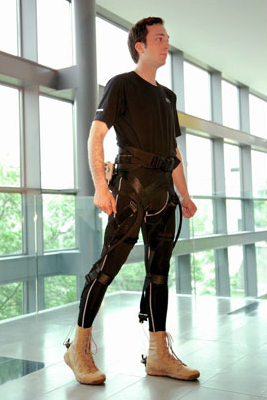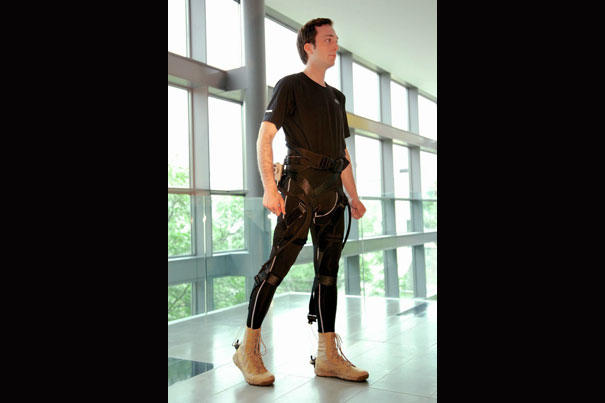Harvard develops soft wearable exoskeleton to assist the medical field
These days, most exoskeletons on the market are rigid contraptions that aim to simple support and assist patients who suffer from movement disabilities, such as those with spinal cord injuries. However, Harvard University has teamed up with ReWalk Robotics to create a lightweight, softer exosuit technology.
The collaboration will speed up the development of a consumer suit to help patients with lower limb disabilities and those suffering from stroke and multiple sclerosis (MS) to regain mobility.

According to the university, in the United States, there are approximately 3 million stroke patients and 400,000 MS patients suffering from limited mobility due to lower limb disabilities.
“This is a very exciting day for the soft exosuit technology,” said Conor Walsh, founder of the Harvard Biodesign Lab and a Core Faculty Member at the Wyss Institute for Biologically Inspired Enineering. “ReWalk brings commercialization expertise and experience in the area of wearable robotics and complements our translation-focused research. Ultimately this agreement paves the way for this technology to make its way to patients.”
The soft wearable robot that the team is working on was developed with the help of roboticists, mechanical and biomechanical engineers, designers, and software engineers.
The development of the product has actually inspired new types of functional textiles, flexible power systems and control systems, all of which have been integrated into the team’s prototype suit.
“There is a great need in the health care system for lightweight, lower-cost wearable exoskeleton designs to support stroke patients, individuals diagnosed with multiple sclerosis and senior citizens who require mechanical mobility assistance. This collaboration will help create the next generation of exoskeleton systems, making life-changing technology available to millions of consumers across a host of patient populations,” said Larry Jasinski, CEO of ReWalk.
The exosuit is comprised of a lightweight form-fitting fabric and employs compact and powerful actuators that are contained in a belt in order to assist the user’s legs. The new design offers wearers the ability to walk with more stability, which could also help prevent further injuries.
Story via Harvard University.


Comments are closed, but trackbacks and pingbacks are open.